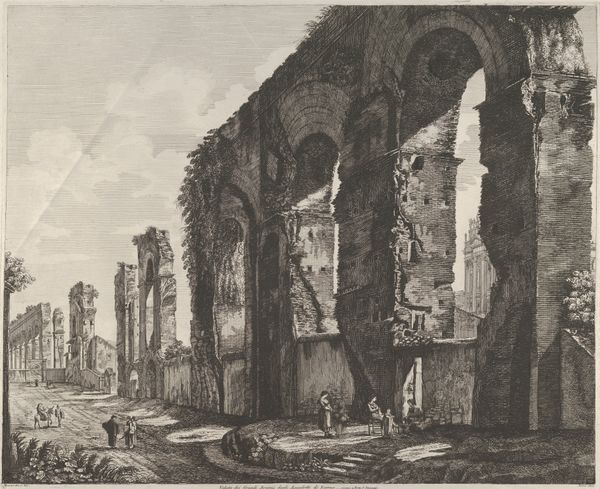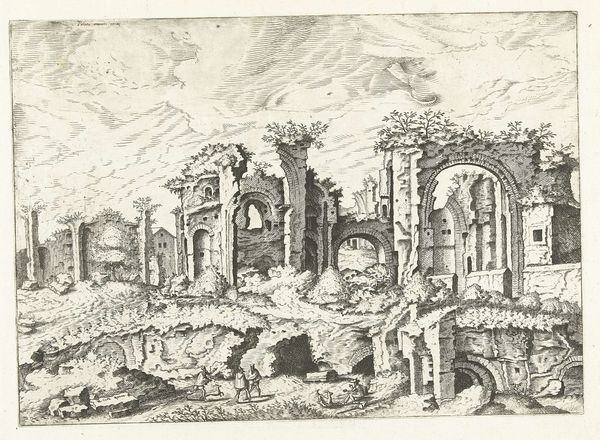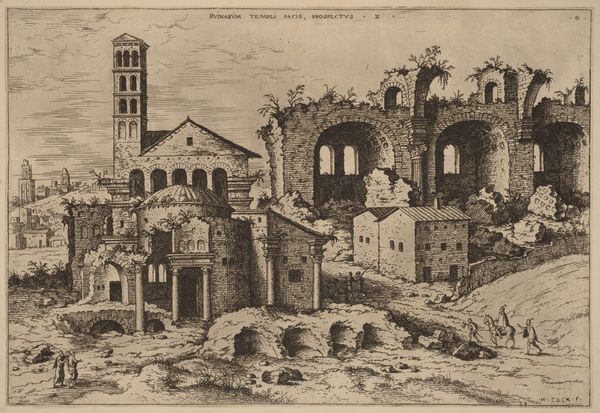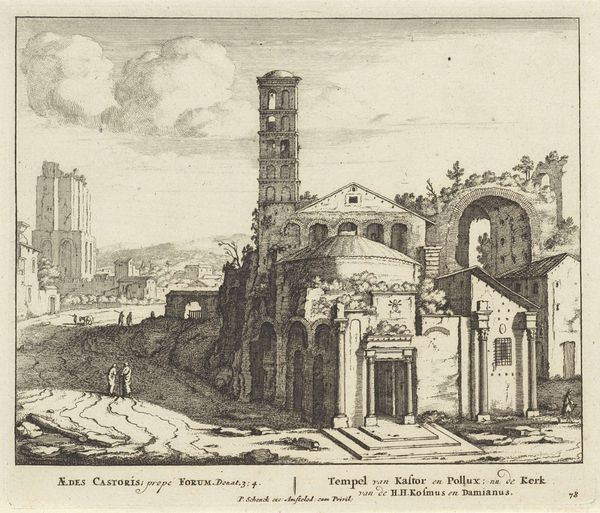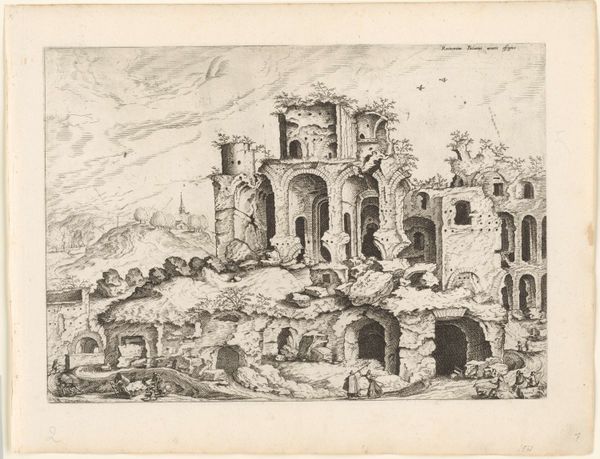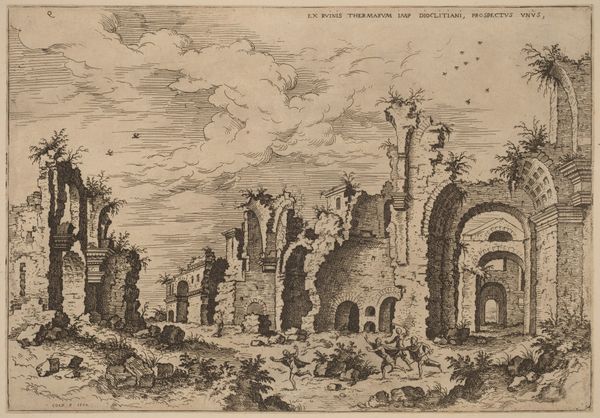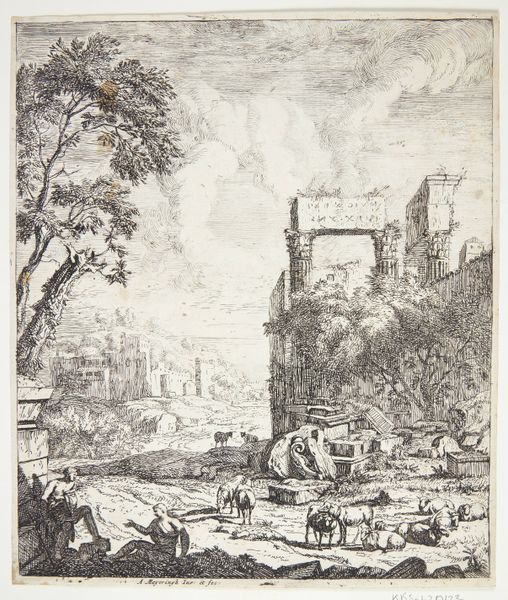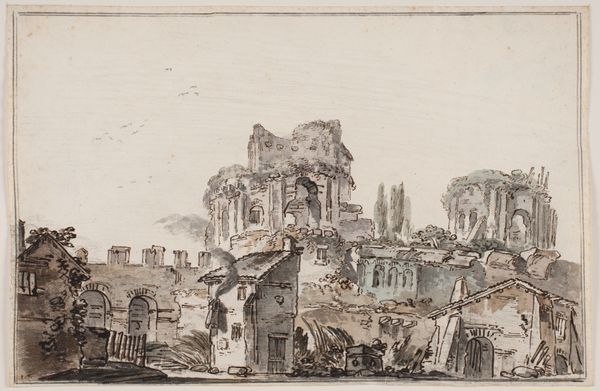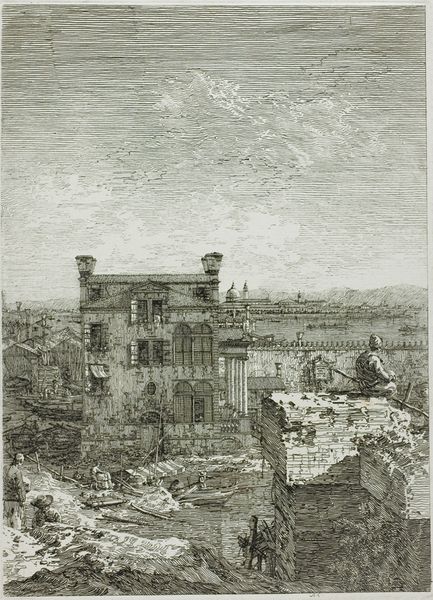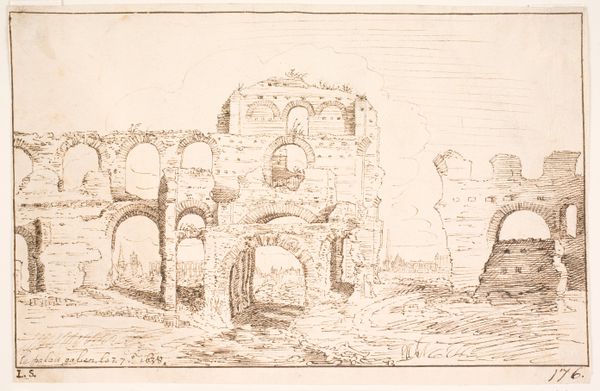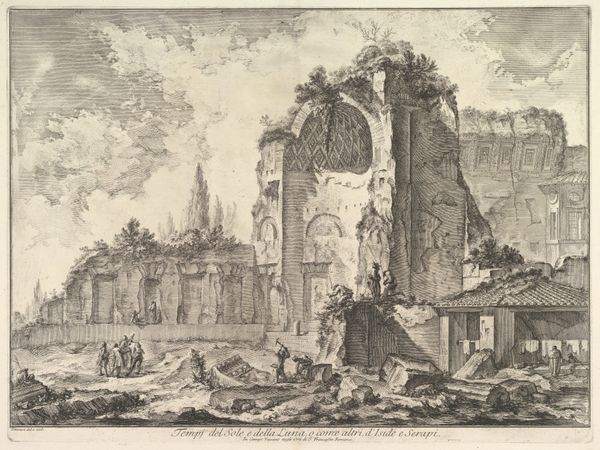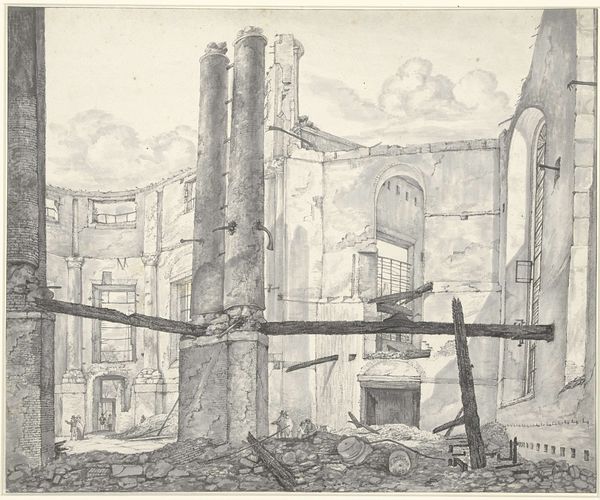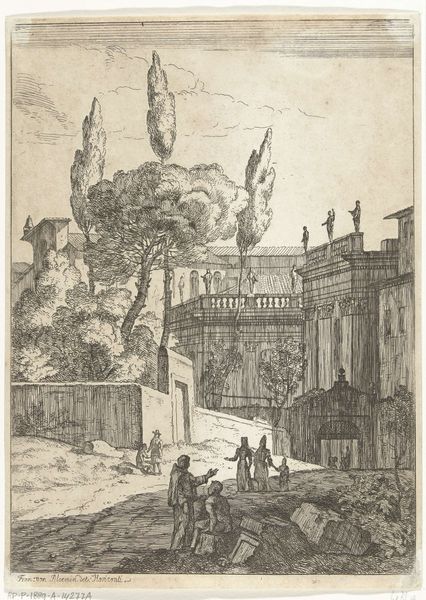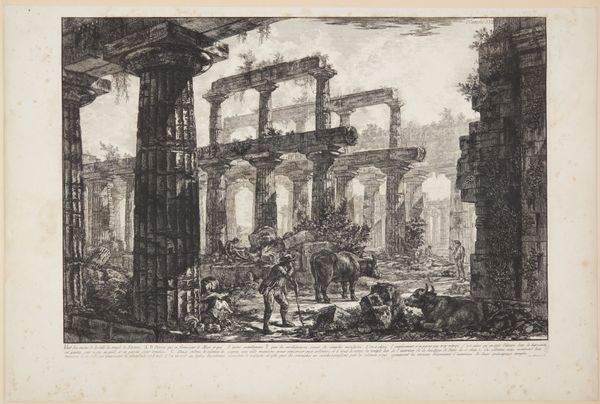
Arch of Constantine and Colosseum with sheep grazing in foreground, from 'Six large views, four of Rome, and two of the Roman countryside' (Six grandes vues, dont quatre de Rome et deux de la Campagne romaine) 1656
0:00
0:00
drawing, print
#
pen and ink
#
drawing
#
toned paper
#
light pencil work
#
ink drawing
# print
#
pen sketch
#
pencil sketch
#
ink drawing experimentation
#
pen-ink sketch
#
pen work
#
watercolor
#
building
Dimensions: Sheet: 12 5/8 × 10 9/16 in. (32 × 26.9 cm)
Copyright: Public Domain
This etching by Stefano della Bella, created in Italy in the mid-17th century, depicts the Arch of Constantine and the Colosseum. The image offers a meditation on the passage of time and the mutability of power. Note how Della Bella contrasts the ruined grandeur of these ancient Roman monuments with the everyday scene of grazing sheep. What was once the heart of a vast empire is now pastureland. The artist uses visual codes to create meaning. The crumbling architecture speaks to the decline of civilizations, while the sheep hint at a pastoral ideal, a simpler, perhaps more virtuous way of life. Della Bella was working at a time when the Catholic Church was reasserting its authority, in part through art and architecture. This image can be read as a commentary on the vanity of worldly power, and perhaps a suggestion of the enduring strength of the Church. To understand this image more fully, we might turn to historical texts that document Rome's urban development, theological treatises that explore the relationship between spiritual and earthly power, and institutional records that reveal the patronage networks that supported artists like Della Bella. The meaning of this print is always contingent on the social and institutional context that shaped its creation and reception.
Comments
No comments
Be the first to comment and join the conversation on the ultimate creative platform.
